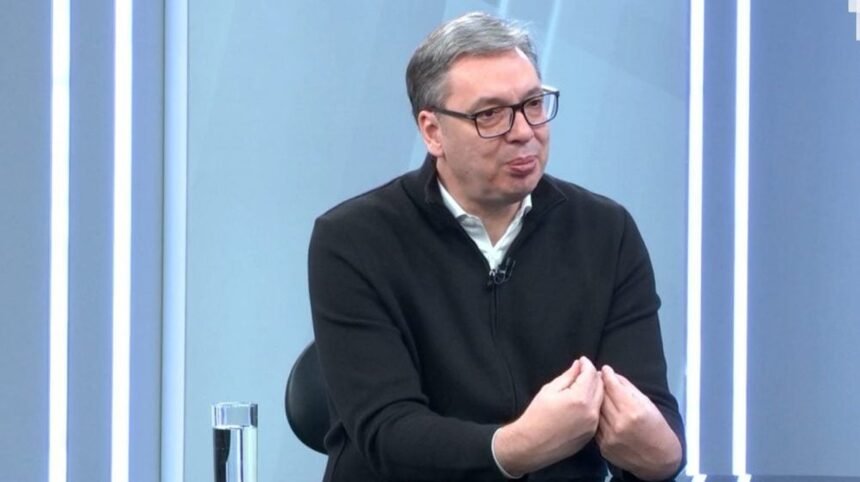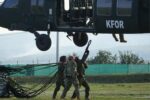Serbian President Aleksandar Vučić has once again placed Serbia in a political and economic chokehold of his own making. While Washington demands the withdrawal of Russian shareholders from the oil company NIS, Vučić declared that he wants to “avoid at all costs” the confiscation of Russian-owned shares — a statement that exposes how deeply Serbia’s strategic sectors remain tied to Moscow due to his long-standing political choices.
Instead of taking responsibility for years of dependency on Russia, Vučić now presents the crisis as something happening to Serbia, rather than something engineered by his own policies.
After months of delays, the U.S. Treasury began implementing sanctions on NIS on October 9. The company, vital to Serbia’s energy security, is still majority-controlled by Russian companies — a reality Vučić has fiercely defended for years. Now, the U.S. has informed Serbia that sanctions will only be lifted if Russian ownership is fully removed.
Vučić, backed into a corner, said the government will announce a decision “within seven days,” insisting that he wants to “exhaust all possibilities” before launching any takeover process. But this crisis did not appear overnight; it is the direct consequence of Serbia being one of the few countries in Europe that still refuses to impose sanctions on Russia, despite being a candidate for EU membership.
While Vučić now talks about avoiding confiscation and nationalization, he fails to acknowledge that Serbia sold its majority stake in NIS to Gazpromneft in 2009 for only €400 million — a deal widely criticized as politically motivated and strategically disastrous. Today, Russia still controls nearly 56 percent of NIS through Gazpromneft and related companies, while Serbia retains only about 30 percent of its own national oil company.
NIS operates the only refinery in the country, located in Pančevo, which supplies 80 percent of Serbia’s market. Yet under Vučić’s leadership, the state allowed itself to remain sidelined while Moscow negotiates with “Asian and European partners” over potential share sales. Even Serbian ministers are now publicly admitting what was obvious for years: Russia has kept Serbia out of critical negotiations affecting its own energy security.
Energy Minister Dubravka Đedović Handanović stated that Serbia has been “very patient and loyal,” but that Russia has consistently excluded the Serbian state from discussions with third parties — a revealing indictment of how powerless Serbia has become under Vučić’s chosen alliances.
Meanwhile, NIS is already struggling to secure supplies due to sanctions. Its oil reserves can only sustain operations until November 25. For a company with €3.3 billion in projected turnover and over 13,500 employees, the inability to operate beyond that date is a direct threat to Serbia’s economy — and a direct result of government mismanagement.
Vučić now claims that “whatever the cost, we will find the money” to buy out Russian shareholders if necessary. But it is Serbia’s citizens who will ultimately pay the price for years of political games, strategic negligence, and his refusal to distance Serbia from Russian influence.
The crisis surrounding NIS is not just a business issue. It is a clear demonstration of how Vučić’s foreign policy has cornered the country, leaving Serbia isolated, dependent, and vulnerable at a critical moment for the region.







